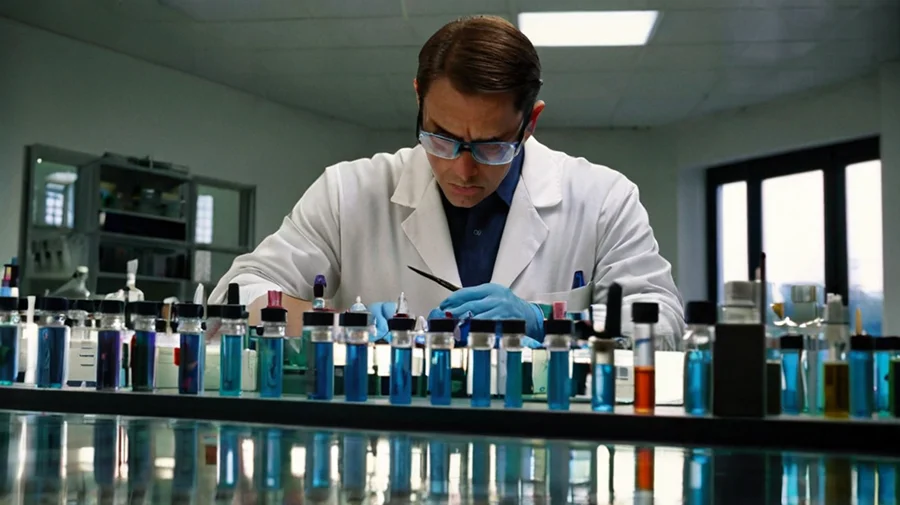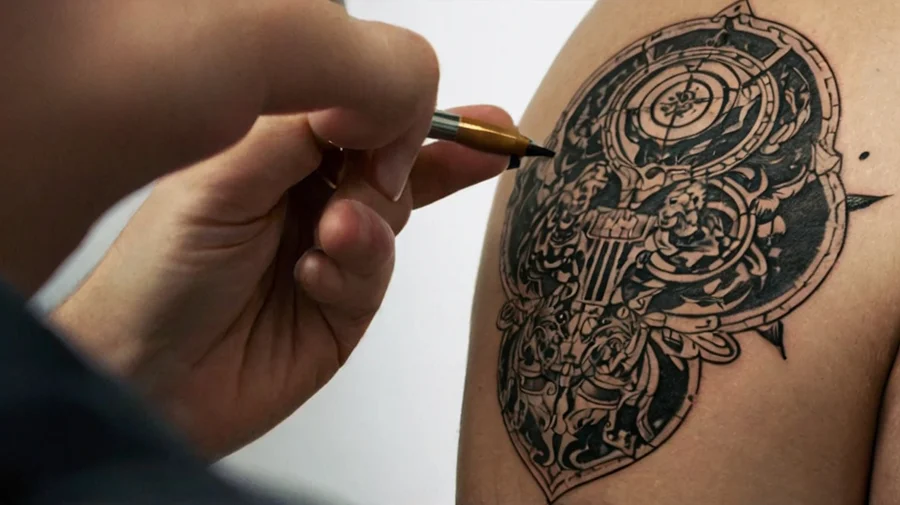The Hidden Danger in Tattoo Inks: What You Need to Know
Chemistry behind Fashion Jul 22, 2024

Thinking about getting inked? You might want to pause and consider the latest findings from the Food and Drug Administration (FDA). Recent research has uncovered a concerning issue with tattoo and permanent makeup inks that could make you think twice before heading to the tattoo parlor.
The Shocking Discovery
The FDA tested 75 sealed bottles of tattoo and permanent makeup inks from 14 different manufacturers. The results? A staggering 35% of the tested inks were contaminated with potentially dangerous bacteria. Even more alarming, this contamination was found in inks labeled as “sterile.”

What’s Lurking in the Ink?
The study identified several types of bacteria in the contaminated inks, including:
– Staphylococcus saprophyticus (a leading cause of urinary tract infections)
– Staphylococcus epidermis (often associated with healthcare-acquired infections)
– Cutibacterium acnes (can cause acne)
– Pseudomonas putida (typically infects immunocompromised individuals)
– Stenotrophomonas maltophilia (a drug-resistant bacteria)
Some inks contained bacterial counts as high as 100,000 per gram – a far cry from the ideal count of zero for materials injected into the skin.

The Risks
When contaminated ink is injected deep into the skin during tattooing, it can lead to various health issues:
1. Local infections at the tattoo site
2. Systemic infections that spread through the bloodstream
3. Serious complications like sepsis or endocarditis (inflammation of the heart lining)
People with multiple or large tattoos are at higher risk due to increased exposure to potentially contaminated ink.
What’s Being Done?
The tattoo industry is becoming increasingly aware of these issues. Some proactive measures include:
– Independent testing of inks for contamination
– Using autoclaves to re-sterilize ink after purchase
– Implementing stricter quality control processes
The FDA has also issued draft guidelines to help manufacturers avoid contamination. However, it’s important to note that tattoo and permanent makeup inks are not currently regulated by the FDA.

Protecting Yourself
If you’re still set on getting a tattoo, here are some steps you can take to minimize your risk:
1. Ask your chosen studio about their ink handling practices and safety measures.
2. Ensure the artist uses new needles and doesn’t touch ink bottles with the same gloves used during tattooing.
3. Follow proper aftercare instructions, including using antibacterial soap and avoiding swimming until the tattoo is fully healed.
The Bottom Line
While tattoos remain a popular form of self-expression, it’s crucial to be aware of the potential risks. As research continues and regulations evolve, staying informed is your best defense. Remember, a little caution now could save you from serious health complications down the road.
Always consult with a healthcare professional if you have any concerns about getting a tattoo or if you notice any signs of infection after getting inked.
Author:
Dileepa Fernando
MBA, BSc (Industrial Statistics),
Diploma in Textile Coloration & Finishing, Lean Yellow Belt